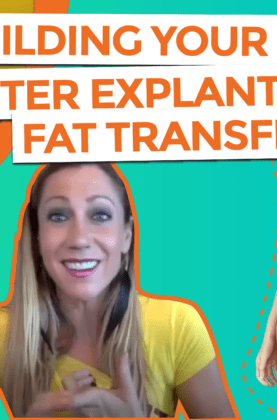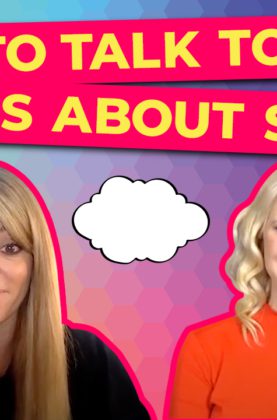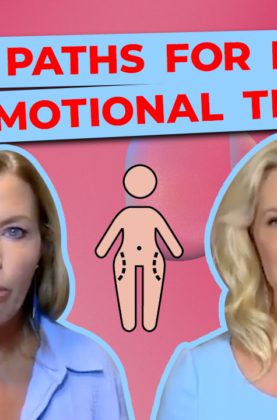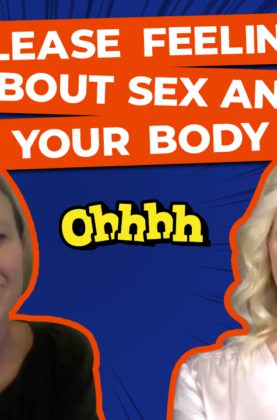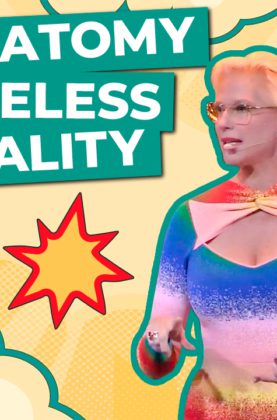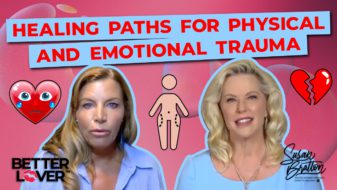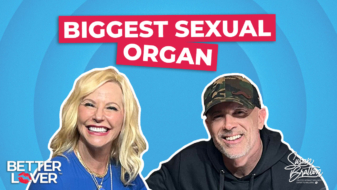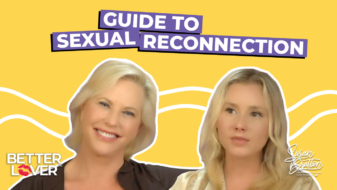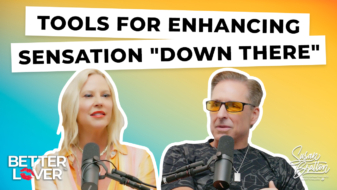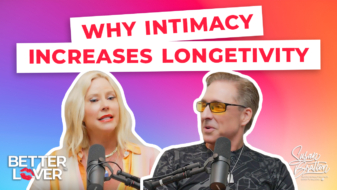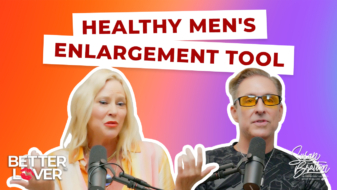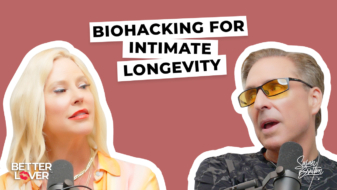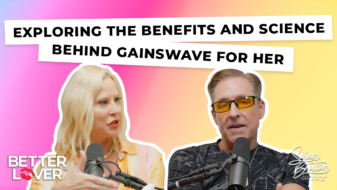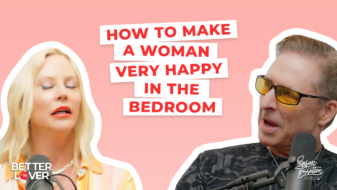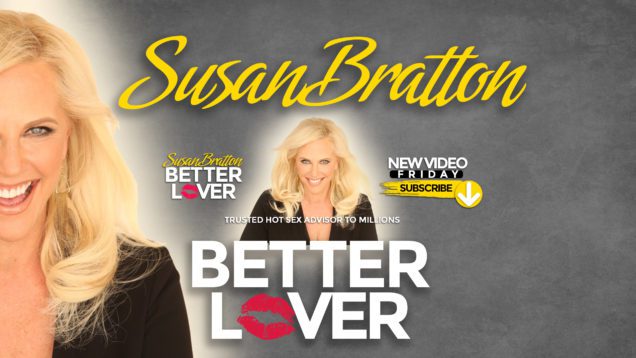How To Talk To Your Kids About Sex
betterlover
For you as a parent, How To Talk To Your Kids About Sex from young to teen and beyond…
Welcome to another segment of the Sexual Vitality Summit. I’m your host Susan Bratton. I am so happy to have this crucial conversation with my dear friend, Nat Kringutis. Nat is based in Melbourne, Australia. She works a bit in the US too. I’m so glad to have an Aussie in the house.
Thank you for having me. I will pull my way through the US based on an accent alone. People are like, what did she say? I’ll be straight-up honest.
Well, Aussies love Americans, and Americans love Aussies. Everybody loves the Aussies. You started as a fertility expert but realized that a gift you had was helping parents talk to their teens about sex. You can go on Amazon, and you can buy a book. It’s mostly telling children about how babies are made.
There isn’t anything I would consider a modern-day handbook to the insanity of teenage sexuality in the internet culture always connected in society. It’s a tricky thing for parents to deal with. No one taught us about sex. I hear from many people that they have anger, bitterness, and feel alone. When they run into problems in their own sex life, they blame their parents.
One of the reasons I’ve had these problems is that my parents never talked to me about sex. I say nobody’s parents speak to them about sex. Very few parents talk to their kids about sex. If they talk about sex, they speak of procreation and contraception and how not to conceive.
They never talked about lovemaking, consent, falling in love, and connection because no one taught them. The world changes too fast, and if they tried to speak, you gave your 15-year-old self a giant eye roll they’ve ever gotten. You made it impossible to talk to you about sex. When you remind people about that, I was 15. I was obnoxious. I’m not the only one. They feel better. So, I wanted to clear the air that you are not alone if you think about those people. Maybe this is one of the reasons why you’re watching Nat and me talk about this.
You want to provide structure and assistance to your child. Nat and I will start with young children, but we will quickly advance and focus our conversation on teenage years and college because that’s when stuff heats up.
You can teach them the birds and the bees. We want to teach them other coping mechanisms. How can you empower your child, and in what ways does that work?
Why don’t you start on things with the early stuff that you want to throw down? Interestingly, I often get asked when the appropriate age is to discuss this with our children. It can be confronting when they ask. Children are curious. They have had questions for so long we have not given them the facts. I know I didn’t get the points, and it wasn’t appropriate to talk about it like it is now.
We are lucky to lead the time where we can have open and honest conversations, and it’s necessary to think about age-appropriate discussions. I’m not here to say you need to reveal what happened in your bedroom last night to your four-year-old, but children ask when they’re ready. We often are embarrassed to talk about it. Or our parents didn’t talk about it.
We feed them lies or versions of the truth. I can’t help but think that if this organic conversation were to continue throughout the younger years, it wouldn’t be as much of a taboo topic when it gets older. That’s where the problem lies. We’ve made it taboo in the past because it was considered taboo. It’s anything you’re told you’re not supposed to do or think about. It makes you think about it all the more.
I’ve got two children, five uh seven not five seven and eleven, and it’s interesting. I wish I had worked this out earlier. I could have come to the party earlier, but we’re all learning and doing our best. That’s the other thing. Our parents did the best at that time with the resources and information they had unless they were complete hippies, and you got the whole works and power to you as well.
Children ask questions when they’re ready. How do we give them the facts? I’ve gone through this with my children when they’ve asked questions. Interestingly, we have an emotional and sexual experience with emotions attached, and they have not. We often have reservations, not them.
When you present them with the bare facts, they do one of two things. They either shrug their shoulders and go oh, okay or turn around. They go, “That’s disgusting, Mum,” and walk off if that’s fine.
It doesn’t need to be anything more than facts from the age where you can have these conversations. For example, my daughter said, “Mum, how are babies made?” I said, “Actually, you’ve got eggs inside you, and daddy’s got sperm inside him. When they get together, that’s how a baby’s made.”
She didn’t ask anymore, and I didn’t give her any more information, and we moved on. Four or five years later, she’d had sex ed classes. We were not confrontational, just the facts. We were talking about the cycle of ovulation and what it looks like. There’s an egg that comes away in the lining, and there was no mention of the period because she’s not ready to hear it.
She’s pretty young-minded, but we talked about the whole cycle. What was interesting was what she said to me. “Wait, you have eggs, and dad has sperm.” I said yes, and she said, “How do they get together?” I was like, okay. That’s something you choose, and it needs to happen in a loving environment that mummy and daddy want to make happen. I’m thinking, here we go, and I’m like, let’s bring this conversation. Let’s get this out there. She’s ready to hear it. I’m prepared to talk about it, but she says, “Wait, you could have a baby today, and you’re not doing it?” I was like, we’re not doing that, and she was mortified more that I could choose to have a baby.
We know it’s not that easy, but I could choose to do that today, and I wasn’t doing that because I wasn’t giving her a baby brother or sister. As she gets older, what’s great is we’ve laid a foundation we can start to build on as she gets older and moves into her teen years when her hormones and mood change. Her desire for the other sex change, or it’s not the other sex. Her hormones indicate that she has feelings and thoughts that can continue to evolve. It’s not going from zero to 100. It’s a bombshell when it happens, or she has no desire to talk about that.
The more I can create that conversation with her. Our duty as loved ones is to live by example and give truthful questions. I also appreciate that not all of us are comfortable talking about that. We don’t have a resource to do that, which is also part of why I wrote beautifully for you to say I get it’s confrontational, and you didn’t want to have that discussion with your parents and don’t want to have it with your children.
Maybe the conversation can be opened by reading together or separately and talking about it. I wanted to create something safe that had the truth in it. I also find I’ll speak to parents and say I love for this information to be part of the curriculum because there are so many parts of it depending on the school children go to or the denomination of school. The facts aren’t given to us. Someone’s deciding that our teenagers don’t need to hear about certain parts of their sexual and reproductive health is ridiculous.
I would love this information to be presented in schools, and parents will say I know, but my child goes to a Catholic school. I’ll be sorry I didn’t realize their anatomy and hormones differed from the rest of the plan.
We make excuses for it because we are learning and slightly embarrass ourselves. The more we can have these conversations, the less taboo it is. The more we can embrace the part of who we are, many people expect children to be taught about sex in school, and I’m not sure it’s the domain.
I can see the health aspects of anatomy and contraception, how a baby is made and gestated, and where you come from. Those health-related things can be a reasonable conversation. I’m having this conversation as part of the sexual vitality summit because I believe that sex education should be done at home by parents as much as possible.
My mother taught me about sex from the minute I asked all the way through. Most people didn’t get that education. If you’re listening to Nat, I want to applaud you because you are taking it into your own hands and taking responsibility to teach your children about sex, love, connection, anatomy, and contraception. I see a lot on Instagram, for example.
There are a lot of conversations about sexuality on Instagram because I follow them. People want to have names for their genitals. They feel their parents never named their genitals. They never said that’s your vulva or vagina, which we don’t call in the modern days. We call it her vulva. That’s the new thing because the vagina is just one of the overall vulva components.
We shouldn’t call it just the penis because you’re missing the scrotum, testicles, prostate, and the pieces that go with it. In evolution, we often call a vagina a vulva, but we’re still calling a penis a penis and not talking about all the parts.
That will happen the same with talking about women’s hormones. We talk about different hormones. With men, we’re relegated to talking about testosterone. Yet there are tons of hormones that affect men. It’s a matter of time before men get the short shrift in the sexuality conversation, but that’s why Nat and I are here to level the playing field. People often feel ashamed about their genitals as adults because it was down there or your pee-pee. There are conversations where people say here’s what we called it in our family, and we never learned the anatomical names.
We never learned about the vulva, clitoris, vestibular bulbs, urethral sponge, perineal sponge, or anus. We never knew about the penis, vas deferens, scrotum, testicles, perineum, prostate, etc.
The best thing you can do for your children is get pictures and encourage them to look at themselves in the mirror. Many women have never looked at their vulvas in the mirror. They don’t understand what parts they have. Encouraging your children and letting them know they can touch themselves and look at themselves and they’re beautiful. Those parts are beautiful. They are missing pieces in many of the things I hear about sexuality.
I’d love to know what you think are the missing pieces for the early years in teaching our children about their sexuality?
I speak to it all the time because I agree we did some research and discovered and we asked the question and created a survey questionnaire where we invited mothers or loved ones to sit with someone younger and fill it in together. I wanted answers from the mother and the team.
We discovered that 40% of mothers didn’t know the difference between their vagina and vulva. We’re on the right track here. We need to talk about this more and a similar result for the teen. I speak to great lengths because we aren’t being appropriately educated. Never before have we given enough attention to areas, especially the vulva, in the book because it’s misunderstood. I can’t help but believe that we wouldn’t be given a body part. It wouldn’t be present if it didn’t serve a purpose. The sole purpose of your vulva is sensation and pleasure. Why would it be something that we pretend isn’t there when everything else in our body we pay attention to. It was the same for the males, so I wanted to have a dot-to-dot of the vulva so that it came to life as you drew it.
That didn’t happen. Instead, we presented different variations because no two are the same. This becomes an issue for young women, especially those who don’t think they look normal. They believe there’s a problem because they’re comparing it to somebody else’s, but it’s like your fingers.
No two fingerprints are the same. No two evolvers are the same. Being able to embrace what that looks like is so important, but it’s more than that. Understanding what it does makes it a special thing for people to understand. I didn’t get that education ever. I never was encouraged to grab a mirror and take a look. The first time I did that was in childbirth when I felt comfortable doing that.
Encourage young people to be in touch with their bodies and not the parts they can see when standing in front of the mirror. They need all their anatomy and understand what each piece does and how important they are and why they are a gift.
It’s discouraged in many institutions because it’s not appropriate. Teenagers are curious. They run rings around us. Let’s give them credit for that. They want to know this information and do good with it. Why would we starve them?
Let us look at the long-term game of our sexual and reproductive health. This is where it starts and what I learned. I first made my mark 15 years ago in treating fertility. It’s rewarding when someone decides to have a baby. You want to help them.
Many people are disconnected from their reproductive and sexual health. Trying to have a baby and having sex all the time is not fun and pleasurable. It’s a chore. How can we change this? Education at that age can change the landscape of our long-term sexual and reproductive health. Open up that conversation.
I talk heavily in the book about this because this is how we change that. I speak that sexuality for young teen boys is a fun phase. We notice changes and have a giggle about it. I remember hearing conversations with my parents’ friends when their sons transitioned through puberty. They laughed and said I sent him to his bedroom to sort himself out. I don’t want to be part of it, and I don’t want to know. They’re all laughing. How can I make this conversation similar to when a young woman starts to change? It’s cumbersome and rests on the fact that we don’t want teens pregnant. Well, most of us don’t wish to have teen pregnancies. That can be a concern for many people.
I want to open the conversation, so it’s not as heavy. It is to be celebrated. We are moving through this transition. We are getting in touch with our sexual and reproductive health. Our hormones are changing. It’s supposed to happen. You can’t shut that off. It makes no sense, and in any other circumstance, we wouldn’t ignore it, so why would we ignore this? We can change this landscape moving forward, and it’s a fantastic opportunity to do so.
Developmentally, there are different times you need to have other conversations with a male-bodied child versus a female body child.
For a male-body child, the first things they’re concerned about are night emissions or wet dreams ejaculation at night. Many young boys also had long-term bed-wetting issues. It’s not an issue. It’s a natural occurrence. They get worried again that something’s wrong. They don’t know what it is. They’re afraid of it and need the reassurance that it’s completely normal.
Tell your young boy that it is what it is if this ever happens to you. It’s your ejaculate or your semen. It’s coming out of you at night. You’re having a wet dream or a night emission. It’s common. All your friends are doing it. It happens as an autonomic response. It’s perfectly normal. Wipe it up. There’s nothing to be ashamed of. As that boy matures more, he will start masturbating. He’s already been masturbating, but it will feel good to him. Say to him: Listen, there is nothing wrong with masturbating.
I don’t want you to feel embarrassed. It feels good. It’s pleasurable. It’s natural. All human beings do it if they can figure out how to. Some people don’t because it never occurred to them, but it’s perfectly normal. Your friends are doing it. You’ll do it for the rest of your life. It’s a way you pleasure yourself and enjoy your life. I don’t want you to worry about it. Just be careful because if you do it too frequently or rub yourself too hard or take yourself to ejaculation when the semen comes out too fast, you could set bad habits for the future.
When having sex with a person in the future, you could have it happen too fast. That’s called premature ejaculation. You never want to rush things. Learn how to control it, go up and down and how good it feels, and be slow and gentle with yourself. There’s nothing to be embarrassed about having that as a conversation with a young boy.
It’s a great conversation with a young girl. I often think what you talk about is how you will get your period. What is menstruation? You’ll see other girls developing ahead of your child and talk about your breasts that will grow. You’ll get armpit hair. You’ll tell that about your boy. Here are the things that happen. This is called puberty. You’re giving them physiological explanations, and you can talk to your daughter about masturbation.
I want you to know that you have a clitoris. It’s part of your vulva. It feels good when you rub it. There’s nothing wrong with girls doing it all the time. It’s part of the future pleasure you’ll have when you make love with your partner.
Don’t worry about it. Get your mirror out. Different feelings feel good to other people. It’s normal. We need to tell our kids they are normal because they think there’s something wrong with them and they’re so weird. If you can talk about it in this way, it soothes them and makes them relax about their maturity and moving through puberty.
I would only add that it is right to have sex and should I be having sex. It was interesting when I first set out to write. It wasn’t about sexual health. I wanted it to be about reproductive and gynecological health because I saw these women with variations of hormonal imbalances. I was like, let’s fix them. It’s broken, but you cannot do that.
You can’t write a book. I saw the opportunity and couldn’t miss it to speak to young people. There is a whole chapter on should I have sex? When should I have sex? When is the right time to have sex? All the questions that we wanted to be answered. Teaching teens. No matter your background or what you believe, they’re either curious, thinking about it, or already doing it. That’s the reality. To openly have these conversations and create a safe space is essential.
Also, make sure that we are protecting and they’re protecting themselves. That’s important when it comes to contraception. Pregnancy is one thing, but STDs are another big thing. Ask the question, should I be having sex? It’s not easy to answer because of our experiences around that. Here’s what I said and encouraged parents to talk about: is it the right time? I don’t know, but let’s check in with how you feel about that? Is it an environment where it feels good? Is it safe? Are you excited? Yes, you will be a bit scared and apprehensive, but if the climate is suitable, there shouldn’t be anything wrong? How do we create that? That’s what I want to encourage everybody to get their teenagers to ask themselves. I’m scared, but I’m excited, and I feel good about it.
If I’m scared and excited but feel bad, that’s probably not the right environment. Empower them to make choices. Regardless, they’re doing it anyway to open up a conversation.
I was speaking to somebody else about this. She was talking about her teenage son. Often, she’s at the supermarket, and she’ll message him and say, “Do you need condoms?” She wants peace of mind to know that he’s looking after himself. She knows he’s having sex. It’s not something they’re pretending isn’t happening. That’s where we potentially can create that disconnect. You don’t need to know the details. How can you open that conversation because things can go differently from what they expect? When we surveyed teenagers, we discovered that around 50 were googling questions about their sexual health. That can often lead them to pornographic websites and entertainment and set unrealistic expectations for their first sexual encounter.
That gave them a false idea of what it was like and what their partner would be like. Especially their first sexual experience is more than likely not going to be like that. How do we create realistic expectations for both young men and women? It’s an essential conversation because it can set up another whole dialogue if it’s not a realistic expectation.
It’s about the conversation for both men and women, not just boys and girls. It’s not separate. You talk differently to different parts of the body. When it comes to sex, that conversation needs to be for both parties to be open and honest. When we do that, we can create a safer environment. As I said, they’re doing it anyway.
Let’s use that as an opportunity to talk to our children and connect with them. Make sure they are safe when they are doing that. There are a couple of ways I’ve handled things over the years and recommended ways to handle things. I’d like to get your take on this. The first one was when I knew that my daughter and her friends were of the age that they were becoming sexually active.
I used a third-person approach on my daughter. I said I could tell that some of your girlfriends are starting to have sex with their boyfriends, and I wanted to fill you in on exactly how contraception works and how to keep yourself safe. I want to tell you about STIs because I imagine that most of their parents aren’t talking to them about it. I want you to be the one who knows the answers so you can support your friends.
Here in America, we have planned parenthood that dispenses contraception. Many girls were getting the birth control pill. I am against the birth control pill because it has synthetic hormones that have a lifetime impact and a harmful downstream effect on a woman’s reproductive health. There’s unwinding that has to happen when a woman goes on the pill. At this particular sexual vitality summit, one of the speakers is Dr. Jolene Brighton. She wrote Beyond the Pill for all the women who took the pill and had to unwind it. When I talked to my daughter, I told her there are a couple of contraceptive methods your girlfriends might have available to them.
One is using a condom. The problem is that there are a lot of skin-to-skin sexually-transmitted infections like herpes viruses. They can jump the condom. Condoms have limited protection. They’re excellent protection, but for you, like my daughter, when you decide to become sexually active, I’d like you to consider having a non-hormonal intrauterine device.
It’s completely stealthy. No one will know you have it. It’s undetectable, and some women have copper toxicity issues, and it’s not good for them. I haven’t had that experience in our family. We should try it. Instead, I’d not go on the pill, but I want you to know the options.
As you get older, one of the things you can learn is the fertility awareness method. You can use these sex tech trackers and iPhone apps that tell you when you’re ovulating because you can only get pregnant one day. You ovulate, but you’ve got a window around that. You have to protect yourself. I don’t want you to have unprotected sex. I want you as my daughter because of my knowledge and my values. They aren’t suitable for everyone. This is just what I wanted for my daughter.
I’d like you to have a non-hormonal IUD, but I want you always to use a condom. You have to tell the boy. You have to lie to him. I told her to lie and say I’m not on birth control. You have to use a condom because I want to be doubly protected. I don’t want you to get pregnant. I would feel bad if you decided to have an abortion or have a child. That’s not a decision I want a young woman to go through. No matter what happens, I’m here to support you. I want you to know about these things. I will explain what STIs are. There are over 20 sexually transmitted infections. Some like syphilis and gonorrhea have the highest number of diseases in teen populations.
Syphilis has a strain called super syphilis resistant to antibiotics. You can get HSV and HPV. Human papillomaviruses are warts on your genitals. You can get the painful herpes viruses on your vulvar lips. You can get syphilis and gonorrhea. I went through the list of STIs. She had a horse I drove her to, and she would ride, and I would walk with her. That would be our mom-time. I would take one little piece and give her a big picture.
I’d give her one data piece and string them together when she was trapped in the car with me. I was sneaky that way. The first thing was I tried to teach her so she could teach her friends. It was not necessarily about her. It was about how she could be empowered to help her friends by being very knowledgeable and informed. The second I did was talk to her when she was trapped. I only dripped out a little at a time, so she didn’t get emotionally flooded or overwhelmed. That worked well for me as a strategy over the years. I took these years to start with the contract, how the baby was made, and the anatomy. I went to masturbation and contraception.
I started talking as she matured and got into the times she thought about having sex with a person. She had a boyfriend or a girlfriend. I don’t like to say what my daughter has or doesn’t have specifically. I started talking about love and connection, keeping your heart safe, and being sweet and slow.
We started talking about kissing versus what’s safe. Can you put your mouth on his genitals? No, because you could get an STI. We started talking about STD testing. What are the tests? How do you get them? You just have to drip. You’re talking about things with your children, including their sexuality and sexual maturation. That seems to be good. When you can weave it into the conversation you’re having with your children, it requires you to understand what you know and what you want to say your values, and what you want to input.
I want to get your feedback and see if you have any good ideas to add ways to do that in resources. Contraception is a fascinating conversation to have. Many mothers will bring their daughters into my clinic and ask what we will do here. I have publicly said I don’t feel the pill is an excellent solution for young women. It shuts down the development of their hormones if you are doing that at 16. It’s important to touch on that. It’s normal if our daughters aren’t developing, so they don’t have a period at 16.
Yet we can often, as mothers, be concerned by that. We’ll take our daughters to the doctor. They’ll prescribe the pill. Unfortunately, there’s no benefit to doing that. You’re not ovulating or cycling, and that’s not an actual period. It’s long-term. It causes far more harm than good because it severely disrupts our gut function, microbiome, vitamin-mineral stores, and hormones. It flatlines everything. Having this conversation is very important because it’s one thing to use the pill for contraception. It’s another to use it to treat a problem that it can’t treat. I want to put that out there because many mothers feel they’re doing the best thing for their children by placing them on the pill to regulate their cycles, when in fact, let’s look at why they’re not cycling. Let’s see why their hormones aren’t working and talk about that.
Thank you for giving me that opportunity, and Jolene will speak to that, but we must understand that if that hormonal access isn’t doing what it’s supposed to do at that age and we flatline that at 16.
This same woman might come off the pill 15 years later. Her body picks up where it left off. The maturation of her hormones is that of when she started back on the medication. She’s got 15 years of catching up to do that isn’t always conducive with a plan of wanting to have a baby today. It’s important to understand. I will never say you shouldn’t use that, but I will tell you to get as much information as possible about the contraceptive pill to make an informed choice. If you still feel that’s your best option, you are informed and should do whatever you think is right.
Susan, I wouldn’t. It’s not my body. I want people to have the information and talk about contraceptive methods in my book. I can talk about it anywhere because you recognize many young girls for contraception. If you have a daughter, what will you put her on? I will sit as soon as I say to you that I get a lot of flak for saying young girls shouldn’t use the pill. First and foremost, to think that a 16-year-old will religiously take that every day.
I’m not sure that’s a burden and that they will necessarily do that. It won’t protect them from STDs. As a doctor of natural medicine, that is one of the biggest problems with long-term health. Protecting ourselves against that as much as we can is essential. The only concern with a copper IUD is the size. For some women, it doesn’t work because of copper toxicity. It’s not something your gynecologist will prescribe. You will have to advocate for it because it is more significant than a marina, and that can be an issue for young women who haven’t yet fully matured or their uterus hasn’t grown to size.
To answer your question, I love your barrier methods 100, but how much do we know about the person we’re having sex with? How do we get to know them better? That’s a pleasant conversation, enrolling all these ideas around it. Sexually transmitted diseases are my biggest concern.
Even if you’re using the pill and you’re 16, you should still use the barrier method, your diaphragms, or anything preventing the sperm from going through. IUD doesn’t stop that from happening. It changes the environment so that it’s not appealing to sperm and implantation. Helping you make this decision together is essential, as opening up that conversation, working at what’s best for you, and being empowered and informed.
I don’t love an IUD. They need to be regularly checked up, which often doesn’t happen, and that’s a conversation I’ve had with many doctors and gynecologists. Who’s checking on this? Because they can migrate, and that can cause other issues. You need to be proactive in this sense of I’ve got an IUD, and I want to make sure every six months I’m going to my doctor and check that this environment is as it should be. I will get my blood checked to ensure my copper and zinc balance and that it hasn’t moved. If you are doing that, you are putting your best foot forward.
I like your method and agree with it. It’s whether it’s right for you regarding where you’re at. Teaching natural fertility awareness from the minute a woman menstruates is essential. The hard part there, especially in the book, is women’s hormones take time to find their groove.
You can’t be too concerned until around 18. If you’re not seeing a regular menstrual cycle, it doesn’t mean your daughter has a problem or that there’s a terrible hormone imbalance between the ages of 16 to 18. Many women will go through a phase that mimics PCOS or polycystic ovarian syndrome, so their hormones change. They’ll gain weight, might have acne and facial hair more than what you would consider a regular monthly event, and their menstrual cycles can be irregular for some time.
I want you to know this because I don’t want you to freak out at that point and think there’s something wrong. The next step is the oral contraceptive pill. That’s not a solution. That’s why I’m telling you this. Understanding that there are stages is essential to know that the hormones don’t settle until around 24. If you see discrepancies, it can be that something within your diet, lifestyle, and environment is impacting it, and it’s normal. It’s not necessarily something to worry about. Trust your intuition if you are concerned.
Let’s get the correct testing mode done and look at what’s going on. But to put a woman on the pill at 16 because she’s suffering from heavy periods, missed periods, acne, PMS, pain, and mood swings is not a solution. That’s not fixing the hormone imbalance. It will only drive it in the other direction. Encourage moms and daughters to look for viable long-term solutions that will always put their health first. I also like teaching a young woman about her vaginal discharge and knowing her cycles and when she’s ovulating. It’s the sticky egg yolk mucus—seeing her mucus plug in her underwear when it’s yellow and crusty.
Understand how that ties to her ovulatory cycle. Getting away and becoming aware from the beginning is the greatest gift. Should you choose to use contraception that disrupts that, you still have time to become aware of this. The number one in the clinic is a 30-year-old woman saying to me why did no one teach me this. I don’t understand my body. It degenerates the cervical crips that secrete your cervical fluid if they’ve been on the pill.
Understand that it can take time to re-establish if you come off the pill. Helping to encourage your body to recover is essential. You will see more evidence quickly the more you attend to that or even while using these synthetic forms of contraception. Supporting your body is necessary. Understanding this, it’s a game-changer. You can’t unlearn it once you know your cervical fluid patterns. I’m a 40-year-old woman. I have two children. I’ve had my partner for 15 years. I don’t want any more children, and I know my fertility inside out and back in the front, and that’s my job.
If I didn’t know that, there’d be a problem, but the reality is you can’t unlearn it. You can not understand again, and it’s so empowering. It’s also important to understand your moods and how you feel, especially for teenagers—know why you’re getting ebbs and flows, and you should feel good when you’re ovulating. You should want to meet the world, touch your heart and libido, and feel attractive, whereas when you’re about to get your period, it’s the opposite and shouldn’t be awful.
That’s telling you there’s something not right. It might be a time when you need to take five. You might have a couch day or half a day watching a movie, feel heavy, flustered, and flushed in the face because of your progesterone and estrogen. Knowing this is important and a game-changer, not something we were taught, contributes to the disconnect I initially discussed. Honoring our bodies is something parents can teach their children. There was a dear friend of mine whose son, at 14, has decided he wants to halt his puberty with hormones. He’s a boy, but he wants to become a girl, and he wants his parents to stop his puberty so that he cannot turn into a man.
The world has gotten so complex. I’m glad that’s not a problem I have to deal with in my family, and I feel bad for their whole family having to go through this because those are tough decisions. There’s so much gender fluidity in Generation Z, our young children. There’s much more awareness of transgender and gender identity issues and people coming out. There are LGBTQ support groups for people. Sexuality is getting more complex, and added to that is pornography. There are many adverse downstream effects to it. I’m an anti-pornography expert.
Seeing people demonstrate sex techniques is positive if shown in heart-connected conscious manners but don’t watch pornography to learn about sex. Young men are masturbating to sex three or four times a day when they’re 12. They see those pornographic vulvas that look like little girls when they see an honest young woman. They’re disgusted when it’s the most beautiful and natural thing in the world.
They’re learning bad masturbatory techniques. They’re watching more hardcore porn. They’re having girls do things sexually because girls don’t care as much porn but now, they’re watching more, so they’re starting to act like porn stars or thinking that is the way that sex is supposed to be. They have a ruined perspective on the beauty of lovemaking and are not in their bodies. They’re not getting pleasured and being held. They’re not being loved and respected. Time magazine quoted a piece of research that did a random survey of over 300 random pornographic scenes, and 96 were degrading to women.
Teaching our children about pornography and the impact and how it’s fake and built for men to masturbate. Men get hooked, and it hurts many people. Most sex experts are very porn-focused and poor and favorable, and their friends are porn stars. It’s not like I don’t have a critical friend. I don’t know if I have a porn-star friend, but I wouldn’t say to someone I can’t be your friend because you’re a porn star. I can speak and stand for us, saying to our children many things in the world are bad for us. McDonald’s gets to advertise on TV, but I won’t let you drink Coca-Cola in every vending machine.
Pornography is harmful to you, so I don’t want you watching it either. You can watch it. Look how disgusting and degrading it is and how it takes over your mind. Everything you need is within you. All your desires and turn-on and pleasure go inside yourself. Feel your body connect with that person you choose to give your heart and body to. Make sure they’re worthy of it. Never do anything you don’t want to do.
The minute it’s not right for you, call it. We need to shift like empowering our boys and girls to know that there’s a beautiful wholeness to who we are, mature sexually, and change our desires. They ebb and flow. These are rhythms of life and our gift that we can connect with another person in a sacred way.
We can frame sex and explain that there are beautiful things that are part of it. It gives our kids a perspective no one tells them unless we do as parents. We researched that young women and men are turning to the internet for information and basing their expectations, and it’s dangerous. It’s not complimentary, and it takes them near the reality of the circumstances of what’s going to play out. I love that you say that. I’m passionate about it, and we need to encourage them to learn about themselves and not see that elsewhere.
I agree with what you’re saying and encourage it. As parents, people say what’s the best I can do? First, we’ve got to be an example to these young people. They will mimic whether we like it or not. Things will come out of my mouth, and we all do this. That was my mum or dad. The other day, I once said to my daughter, can you get your feet off the couch? She says but why. There’s no reason. You don’t have any shoes on. You just had a shower and cleaned.
It’s because that’s what my dad used to say to me. That’s a relatively benign example, but they will mimic what they see. How can we be the best version and connected as parents regarding our sexual health? It’s not about them having to know anything other than that’s part of your loving relationship. It’s part of who you are as a couple. It’s essential to spend your time together and demonstrate that and create that safe space to talk about that in a reinforcing way if we can do that, partway way there already without even being too worried about getting it right.
There’s pressure on us as parents from every angle. The other thing is that teens don’t want to be preached to. I remember being a teenager. Whatever you told me, I would do the exact opposite because I was told what I had to do. Again, talking about it empowered her to be more to her friends.
It’s also about removing the fears, and we are innately programmed in that way. One of the things I teach anyone who will listen is how we switch it over to creating what we want to make, not precisely what we don’t want to create. Don’t fall pregnant. It’s like, how can we enroll in a conversation of empowerment and understanding your cycle so that you can understand your fertility. We’re talking about positivity and fertility, not about babies. Fertility is about your reproductive systems thriving so that you can do that one day when you want to have babies. Your fertility is about your hormones and health and thriving.
We as parents can speak positively to change our children’s approach and health. I want to leave you with two quick things. First is that if you say to your child, I’ve got you no matter what. You’ll always be my baby for the rest of your life, and I got you. If there’s rain, shine, sleet, or snow in your life, you come to me, and I will help you figure it out, protect and care for you because I got you.
Nothing you can say or do will make me not love and support you. Get up here whenever you need your mommy or daddy. We are here for you. If we don’t say those things explicitly to our children, we’ve missed an opportunity. That’s very important.
Another thing is if you think I could never speak about this stuff as eloquently. We’re trained professionals, so we talk about it well, and you might be thinking, I don’t know this. I’ve been over my head. Here’s an excellent coping mechanism I’ll leave you with. One of the things I did was buy books about sexual health and our bodies and the joy of sex and classics.
There is another one of Carol Queen’s books. I’m hoping I’ll have her at this Sexual Vitality Summit. I got these books and had already talked to my daughter about sex, reproduction, anatomy, and having a baby. I said I got these books. These are the classics.
I’m going to put them on a shelf in the library, and you and your friends can access them anytime you want. I got them for you. I’m also reading them because I want to answer everything you need if you have any questions for me. These are for our family, and you have access to them. I put him there, and I know she looked at them. I didn’t worry about when she did or who she looked at them with, but they were there for her so that she didn’t always have to come to me and ask me because now you can see that she would have been OMG, TMI mom! You will tell me how many things I don’t want to hear. I thought that was another excellent ninja move I used. Access them whenever you want.
I don’t know when you’re looking at them, and that helps kids also furtively get the information because they’re still so shy about it—asking other people what are you doing? What have you done? We ask for this information in other areas, but we don’t ask for it here. We permit ourselves to open up and want the best for our children.
Thank you for having this conversation with me. I wouldn’t have thought to cover this topic at the Sexual Vitality Summit had I not gotten your insights. People watching care about their sexual vitality, children’s health, and happiness. I appreciate you bringing this idea to the summit. It’s lovely to meet you and have an Aussie in the house. I adore you, Aussies. Thank you so much for everything. I’ll make sure we have all the information about you and how to find your book, and I’m sure people will want to connect with you. Thank you so much, Susan. It’s been an absolute pleasure to talk to you. Great minds think alike. I’m your host of the Sexual Vitality Summit, Susan Bratton.
I’m looking forward to having more great times with you.
Get the latest sexual health and wellness tips by email, click here.




